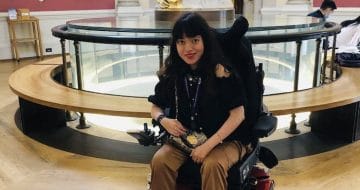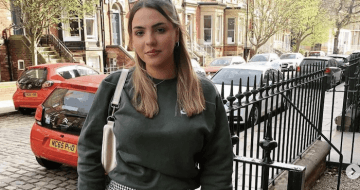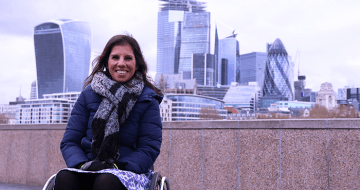Kaleem Khan shares his experience and how he uses technology and support teams to help him with his work

As somebody who has been registered as blind (legally blind) since the age of four, meaning that I can’t read, recognise people or deal with any hard-copy books and documents, you may be wondering why I decided to become a lawyer and how I manage to do my job on a daily basis.
The answer isn’t simple, nor is it mono-facetted. It requires support in the form of specialist accessibility software, extra junior lawyer, trainee and secretarial support and a whole lot of resilience, determination and the ability to get yourself back up off the floor when something knocks you to the ground (metaphorically of course).
I won’t focus on all the aspects that make it possible to do my job. Instead I’ll focus on some of the key accessibility adjustments I require. At least then, hopefully, you’ll get to the end of this piece having learnt something that you didn’t know before.
The key tool enabling me to access my work is screen-reading software. Yes, this is exactly what it sounds like and does what it says on the tin! It is a software that reads out the relevant documents, emails and webpages to me. In a similar respect, when I’m typing, the screen reader reads aloud to me what I am typing and will help me to review my work.
There are several leading screen readers out there. The one I use is called ZoomText Fusion. ZoomText Fusion is quite neat as it provides both a screen reading function (using a piece of software called JAWS) and it also provides a magnification feature where the screen is magnified to the relevant extent required by users. Whilst I principally rely on the screen reading aspect of ZoomText Fusion, I still like to have my screen zoomed into 14x times so I can navigate the cursor to the extent I need to. This is more of a personal preference rather than a necessity and a lot of users will just rely on the screen reading aspect of the software to do their job and their screen will, for all intents and purposes look the same as a normal screen.
Another key part of my adjustments is the extra support I get from junior associates, trainees and my amazing PA team. Lawyers work in teams and it is this team spirit that makes my job a lot more accessible. My PAs sort me out logistically to make sure I’ve got everything I need: they help ensure my documents are in accessible formats, record my time sheets, regulate my diary, take me to the relevant meeting rooms when needed, and most importantly of all, sort my lunch arrangements out! The more junior lawyers and trainees on the team help me to do all the work that accompanies legal matters, by helping to file letters with HMRC, preparing tax elections, performing research, proof reading and checking my work, and generally keeping me in line!
Working with me is different to working with others as I require everything electronically and my documents need to be in a certain format and style (amongst other things). When new trainees join the team, the current trainees send them an ominously titled “Working With Kaleem” document that explains how I work and all the various adjustments they need to make when working with me. That document is drafted by the trainees themselves (following my initial input) so they can pass on any helpful tips to each other to make working with me the fun experience I try to provide! I also think it’s very good for quenching any anxiety an incoming trainee may have about working with me and making sure they get it right. Let’s be honest, there aren’t a massive amount of blind lawyers around (though that is changing slowly) so I can understand why new trainees may at first be nervous about working with someone with my additional needs.
Lastly, I think it’s worth stressing that it is an incorrect, albeit extremely common, assumption that accessibility adjustments such as mine reverse the effects of being blind. This is completely wrong, and I can’t reiterate this enough. The above adjustments enable me to access my work despite my sight impairment. They do not however get rid of the challenges my sight impairment causes; and they do not therefore mean I can work as someone who is fully sighted.
Accessibility adjustments are not a cure all for a colleague’s disability. Throughout my career, one of the biggest challenges I have faced is a lack of understanding. To a large extent this lack of understanding and support from colleagues can go a long way to undermine a lot of the benefits my other adjustments provide, so I want to do what I can to raise awareness of sight impairment and disability; and educate people on the day-to-day challenges individuals with sight impairment and disabilities face.
Kaleem Khan is a senior tax associate at Travers Smith. He is registered as blind and runs a blog The Legally Blind Guy about his experiences as a blind City lawyer.



